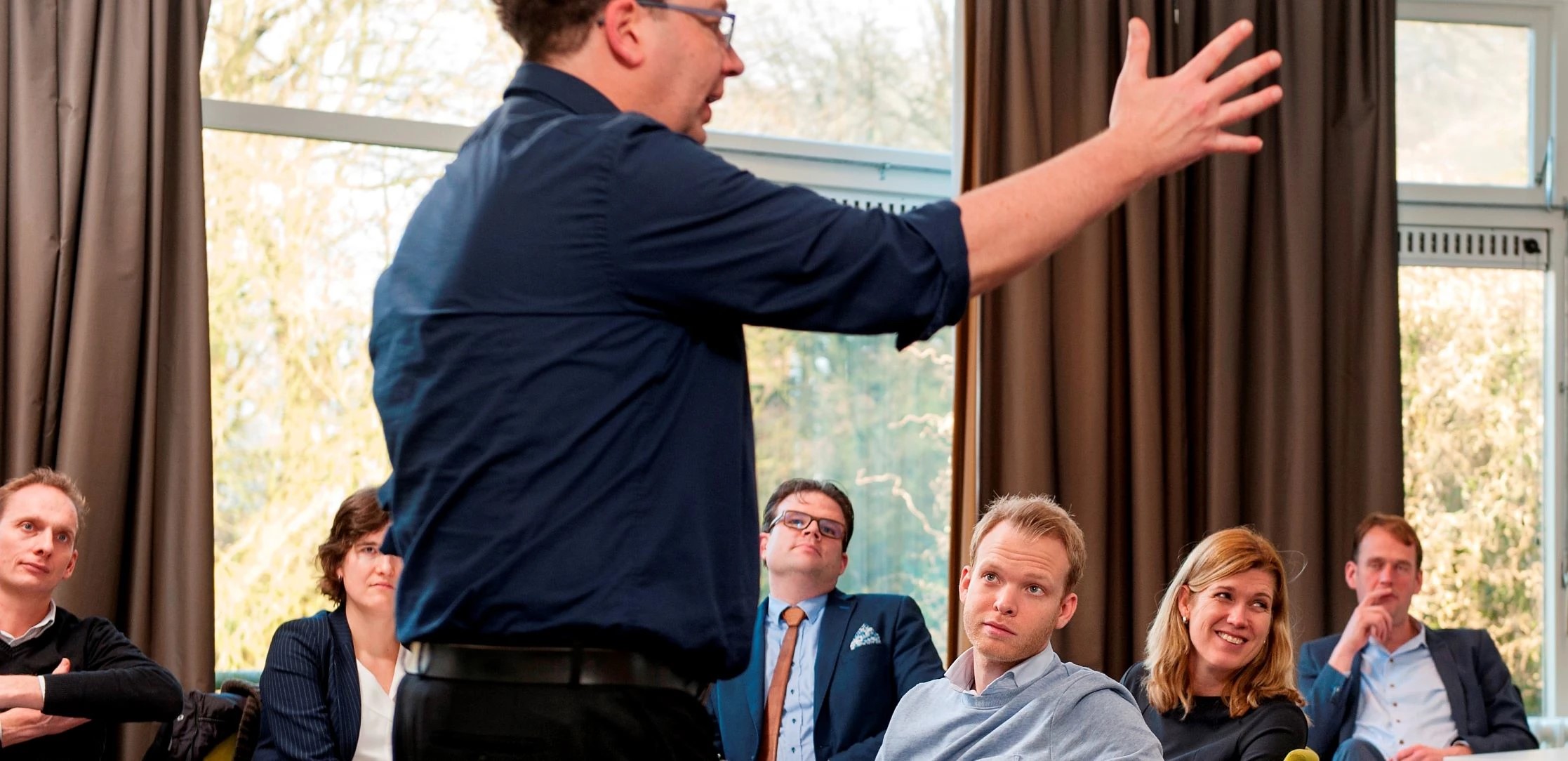When it comes to the business sector, digital transformation is not just a choice, but rather a necessity. That is what Dr. Ir. Wolter Lemstra reiterates, the core professor of Digital Strategy and Transformation – a course of the Modular Executive MBA in Business & IT. Lemstra: “At one point or another, every organization will have to face digital transformation. So the best approach is to be adequately prepared.”
What kind of impact will digitalization have on my company? Our business is being overtaken by our competition – how do we turn that situation around? Or better, how can we get a head start? These are just a few of the crucial questions that will be answered in the module, Digital Strategy and Transformation. Core professor Wolter Lemstra: “We provide the participants of this module with both the theoretical framework and the practical tools that managers might need in order to regain control.”
What are the tangible lessons that the participants of this module will take away from it?
Digital Transformation: an introduction
What types of digital technologies are we familiar with? How have these technologies shaped and changed our economy and society? Lemstra: “We explain the framework within which companies and organizations operate, which allows participants to gain a deeper understanding of the kind of changes that are taking place around them. For example, we conduct research on what the emergence of block chain software means. This allows companies to carry out transactions in a transparent and reliable manner, essentially making intermediaries such as banks redundant. This is alarming news for the financial sector – how should this issue be approached? But for many entrepreneurs, this development will make running a company more efficient and cheaper.”
‘Essentially, participants will discover which opportunities digitalization might create for their organization.’
Establishing a digital strategy
How can you change your current business model to make it more digital proof? Which aspects of your company are fit for digitalization? The second step that participants will need to take is to get a clear idea of their own company’s position on digital transformation. Important questions to ask include, how do you approach customers? How do you want to be approached by them? How can you ensure that you will retain your added value? “The last question in particular is extremely relevant during this period of disintermediation. Certain aspects of the value chain are disappearing because clients and customers can now take care of these aspects themselves. Travel agencies were among the first to experience this – these days, everyone books their own flight tickets.”
Creating revenue with a digital platform
The digital platform is a highly rewarding revenue model. How does a platform as such succeed? That is one of the main questions that will be answered in the third part of the module. “Booking.com and Foodora, for example, have managed to create a popular digital platform which respectively allows hotels, restaurants, catering businesses and consumers to find one another. If you can participate in a platform like this or create one yourself as an entrepreneur, you will be at the forefront of the digital transformation.”
Using big data responsibly
Finally, how can entrepreneurs use the available data to the fullest extent and in a responsible manner? And how should users be informed about this? “Companies that communicate transparently and clearly about the way they use personal data will face far less resistance. It is not always easy, but organizations that manage to remind customers of all the advantages that big data offers them can truly create a win-win situation.” Dr. Sander Klous, professor of Big Data Ecosystems for Business and Society at the University of Amsterdam, will be teaching a class on this topic.
Gaining confidence
Lemstra: “Our main goal is to help participants of this module to gain confidence regarding digitalization. Their own company will be the focal point during this process. We hope that the theoretical information and tools we provide will give you the insight you need to get the conversation going with your colleagues, and as a CSO, CIO, CMO, etc, you will be able to take the lead. In the future, instead of being alarmed at the latest news on digitalization, you will feel both comfortable and confident. Being aware of the latest developments, you will be in a position to make informed decisions about digital transformation.”
Related programs
-
Modular Executive MBA in Business & IT
Start date: spring & autumnLanguage:- English
Location:- Breukelen
The Modular Executive MBA in Business & IT focuses on technology as the driver of your business.
View program
-
Business Processes and Technology
Start date: March 12, 2026Language:- English
Location:- Breukelen
We will look at business processes and technology's role therein. The module is part of the Modular Executive MBA in Business & IT.
View program
-
Digital Strategy and Transformation
Start date: March 3rd, 2026 - September 8th. 2026Language:- English
Location:- Breukelen
The module Digital Strategy and Transformation looks at the strategic perspective of digital transformation. Part of our Modular Executive MBA Business & IT.
View program
-
Business Value of Data and Technology
Start date: October 1, 2026Language:- English
Location:- Breukelen
The module Business Value of Data and Technology provides academic knowledge and practical tools to help you organize IT and data fit for purpose. Part of Modular Executive MBA.
View program
-
Strategic Marketing and Innovation
Start date: October 5, 2026Language:- English
Location:- Breukelen
Through the range of advanced strategic marketing (e-commerce, segmentation, omni-channel, social media) and actual business cases (big data, privacy, migration from offline to online, integrating online and offline) participants will discuss how marketing and technology can strengthen each other.
View program
-
Business Ethics in context
Start date: September 24, 2026Language:- English
Location:- Breukelen
Explore the interfaces between market, law and ethics. Part of the modular MBA Business & IT.
View program

